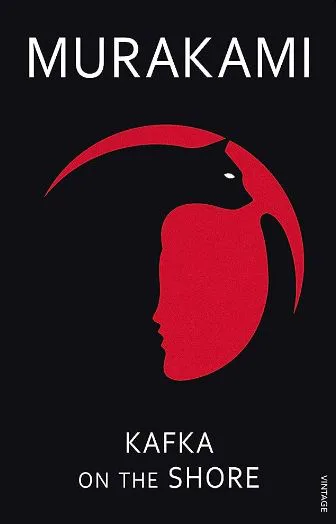
Haruki Murakami’s works are quite intriguing. “Kafka on the Shore” is my second read after “Norwegian Wood”. It was first published in 2005. The book was acclaimed by The New York Times as one of “The 10 Best Books of 2005” and earned the prestigious World Fantasy Award for 2006.
The narrative incorporates aspects of magical realism, fantasy, and metaphysics to delve into themes of family, destiny, existence, and the depths of the mind. The story revolves around two main characters:
- Kafka Tamura, a fifteen-year-old who chooses to flee from his home, and
- Nakata, an old man who lost his memory and much of his intellect in a strange incident during World War II.
Kafka leaves his home in Tokyo and finds himself in Takamatsu, located in southern Japan. His journey is driven by a search for his mother and sister, as well as a quest for self-discovery and escape from a disturbing prophecy involving his family. He stumbles upon a library, where much of the story unfolds.
Meanwhile, another character, Mr. Nakata, is introduced. As a child, Nakata lost his memory during World War II and grew up mentally challenged. Despite this, he possesses the unique ability to communicate with cats. Supported by government aid and living off an inheritance managed by his brothers, Nakata spends his time helping neighbours find lost cats in exchange for modest rewards.
Converging Paths
As the story progresses, it weaves in magical aspects like talking cats, spirits, and mystical portals. Although the two characters appear to be on separate journeys, their paths ultimately converge toward the novel’s conclusion, leading to an intriguing and highly surreal ending.
When it comes to connecting with the characters, I was particularly drawn to Kafka, especially up until around the middle or two-thirds of the book. His proactive nature and the intriguing questions stemming from his actions kept me engaged. However, as the story progressed into the latter half, Kafka’s chapters started to become very abstract and increasingly bizarre. This shift, particularly in the romantic scenarios, detracted from my overall enjoyment and made it harder to stay invested in his character.

Takeaway
Japanese literature is full of such hallucinatory landscapes where the boundaries between dreams and reality blur leaving readers uncertain about their distinctions. Murakami’s works embody this surreal quality, standing as prime examples of this literary tradition.
One thing that I find common in all his characters is that they grapple with complex emotions, unresolved traumas, existential questions and confront their own perceptions of reality. Dreams and visions frequently intersect with their experiences, which blurs the line between the physical world and the realm of the subconscious.
This inner turmoil mirrors the external surrealism, which makes them disoriented and confused, unsure of what is real and what is merely a figment of their imagination.
However, interestingly, throughout the novel, characters share their favorite songs, albums, and musical experiences with each other. This leads to forming bonds and forging connections through the shared appreciation of music. Maybe they find it hard to articulate the depth of their emotional turmoil, and so they resort to sharing the music itself as a way of conveying their feelings.
Additionally, with music, there are some lines that are exceptionally beautiful. These lines contain the most poignant and soul-stirring words I’ve encountered in the novel,
“And once the storm is over, you won’t remember how you made it through, how you managed to survive. You won’t even be sure, whether the storm is really over. But one thing is certain. When you come out of the storm, you won’t be the same person who walked in. That’s what this storm’s all about.”
And,
“It’s like Tolstoy said. Happiness is an allegory, unhappiness a story.”
Also,
“Every one of us is losing something precious to us. Lost opportunities, lost possibilities, feelings we can never get back again. That’s part of what it means to be alive.”
Last,
“No matter how much time passes, no matter what takes place in the interim, there are some things we can never assign to oblivion, memories we can never rub away. They remain with us forever like a touchstone.”
Honestly, (with slight audacity, I can say) I’m uncertain if I truly enjoyed “Kafka on the Shore,” but I’m intrigued by the idea of delving into more of Haruki Murakami’s works. Themes like surrealism, existentialism, and the intricacies of human nature offer distinctive and intellectually stimulating literary experiences that I’m eager to explore further.




[…] I kept thinking about it over and over. Because if you really sit with Murakami’s novels, Kafka on The Shore, The City and Its Uncertain Walls, Norwegian Wood, A Wild Sheep Chase (currently reading) to name a […]
[…] with open eyes? If not, read A Wild Sheep Chase by Haruki Murakami. Last year, when I first read Kafka on the Shore, I remember closing the book and staring into nothing for a full minute. It was the kind of book […]